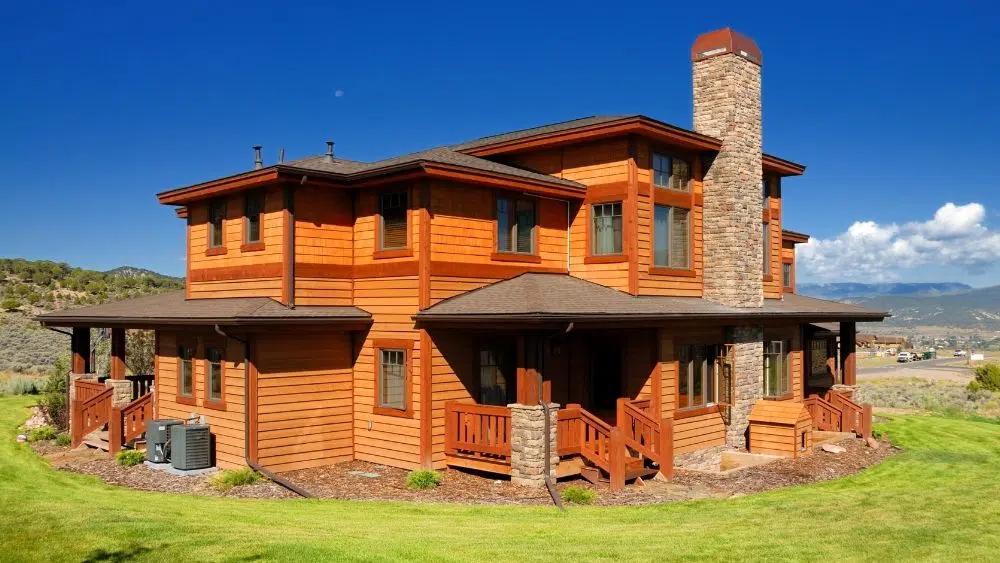
Mountains, forests, canyons, and rivers – if you’re ready to make Colorado home, you’re about to be treated to some of the country’s most picturesque landscapes all year-round. While you may be saving for a down payment to buy your dream home in the stunning Centennial State, make sure you have the cash on hand for closing costs, too.
While Colorado has plenty of affordable cities, homebuyers often overlook closing costs – an expensive hurdle. Thirty-five percent of Americans are caught off guard by these costly closing fees, and another 17 percent didn’t even see this step coming, according to a 2017 poll conducted for ClosingCorp, which researches residential real estate data. Mortgage insurance, taxes, title insurance and appraisal fees were some of the expenses that most surprised homebuyers.
Closing costs encompass all the fees you’ll have to pay prior to receiving the keys to your house. Think of it this way: securing a home loan isn’t free – you have to pay for the services of your mortgage lender, attorney, appraiser, inspector, and the title company that conducts the closing. Don’t forget real estate transfer taxes, property taxes, HOA fees, and home insurance. Instead of paying each service provider one-by-one, these expenses are grouped together and paid in a single sum on closing day.
So how much are closing costs in Colorado? Our guide to the Centennial State has got you covered, with an in-depth look at how much homebuyers pay on average on closing, what’s included in the bill breakdown, and how you can save thousands of dollars on this final expense in the homebuying process.
How Much are Closing Costs in Colorado?

While it isn’t in the top 10, Colorado is the 15th state with the highest closing costs in the country, at an average of $2,906, taxes included, for a home priced at $371.498. That makes up just 0.78 percent of the home price, according to a 2021 report by ClosingCorp.
In 2020, ClosingCorp placed Colorado in the middle of the pack, ranking 25th in closing costs – buyers spent $3,672 on homes priced at $424,479.
Keep in mind, these figures are based on a homebuyer applying a 20 percent down payment, which eliminates the need for private mortgage insurance. Other state-specific expenses aren’t included in this estimate. Colorado is known for its harsh weather, complete with hail, flash flooding, and wildfires, so extended policies on your home insurance are a guaranteed added expense.
Overall, homebuyers should expect to spend about two percent of their home’s purchase price on closing costs. June 2021 data from the Colorado Association of Realtors pegged the average sales price of a single-family home at $530,000. In this case, closing costs would be somewhere between $5,300 and $10,600.
For comparison’s sake, the national average for closing costs for the purchase of a single-family home was $6,087 in 2021.
Closing costs also need to be paid in addition to your down payment, which means homebuyers need to commit to saving up a lot of cash.
What’s Typically Included in Colorado Closing Costs?

When it comes to understanding the bill breakdown of your closing costs, the expenses start tallying up as soon as you apply for a home loan. If you’re curious about what your closing costs entail in Colorado, here’s a closer look:
Loan origination fees
Unless you’re buying a home with cold hard cash, you’ll need the help of a lender to secure a mortgage. This makes loan origination fees one of the first initial expenses you’ll incur in your closing costs. In a nutshell, they’re what your lender charges you to set up your loan application, conduct underwriting, and process your funding.
Expect to spend about 0.5 to one percent of your loan amount on these fees. In June 2021, the median sales price of a home in Denver County, for example, was $515,500, according to the Colorado Association of Realtors. That means loan origination fees range between $2,577.50 and $5,155.
Credit report fee
Just like when you’re applying for an automobile loan, a credit card or a personal loan, your lender needs to perform a full credit check to make sure you’re a responsible borrower. They’ll pull your credit score and request your credit report before offering you a loan
Expect the lender to pass along this $25 expense to you. If more than one borrower is involved, double this expense because your lender will need to check both of your credit reports.
Escrow fees
Although most of the closing costs are negotiable between buyer and seller, they’re typically split right down the middle in Colorado, and that includes escrow fees.
Escrow is a financial arrangement where a neutral third party – in this case, the title company you’re hiring – holds onto your funds in a separate account. So you aren’t paying the seller until the ink is dry on your home purchase and both parties have met all their conditions.
Your title company guides you through the checklist of things you need to have completed by closing, like buying adequate insurance policies and executing a title search. They’re even the ones to meet with you on closing day to sign off on all of the last bits of paperwork before they hand you the keys to your home!
Buyers and sellers need to agree on this shared service – you might propose one company to your seller or builder, and they’ll need to sign off on the title company before proceeding. It’s worth shopping around for rates because some title companies will charge according to a percentage of the home sale, while others have a fixed fee.
Title search and title insurance
One of the biggest tasks your title company will perform is a title search. When you buy property – whether it’s a new build or an existing home – you must confirm that you’re going to own it free and clear. This is where your title company comes in to conduct a thorough search, dating back to the past three decades or more to ensure the land you’re buying has no liens or lawsuits in progress.
Traditionally, buyers pay for the title search process, which could cost hundreds of dollars, depending on the complexity of the historical records on the property.
After the title search is complete, your lender will expect you to buy title insurance as a safeguard. If the title search misses something, title insurance acts as a second layer of defense so you aren’t responsible for any surprises. Traditionally, title insurance premiums are picked up by the seller in Colorado but keep in mind, this is another moving part that’s negotiable.
Colorado Real Estate Transfer Tax
Homebuyers in all but 13 states must account for “real estate transfer taxes” in their closing costs, and that includes Colorado. Transfer taxes are paid to local and state governments as the seller transfers the home to the buyer. Sometimes this expense can be listed as a deed tax, mortgage registry tax or stamp tax on your closing costs bill.
You may even be on the hook for a recording fee for this transfer of property, with some governments charging by the page for updating records.
There are no concrete transfer tax rules – they vary from state to state, and even from county to county within Colorado. But under state laws, transfer taxes can’t exceed more than two percent of the home’s purchase price.
You can check on what your transfer taxes may look like by consulting your local county officials. In Summit County, for example, homebuyers in Breckenridge and Frisco will pay one percent in transfer taxes, while there is a zero percent transfer tax fee in Keystone and Blue River.
There is a statewide “documentary fee” of 0.02 percent per $100 of property value that’s paid to the country clerk and recorder that documents the change in ownership. Even if your local community doesn’t have transfer taxes, you’ll have to pay this extra fee.
There are affordable housing and deed restricted neighborhoods that are excluded from any transfer taxes, too.
Typically, transfer taxes are split between the buyer and seller in Colorado, but this is another cost that can be negotiated.
Attorney fees

While it’s mandatory to have a real estate attorney on your side when you’re buying a home in 20 states, this isn’t the case for Colorado.
If you have a straightforward home purchase from a builder, for example, you can breathe a sigh of relief because you don’t need to add this expense to your tab.
You may still hire an attorney anyway, especially if you need an expert to draft or review contracts, certify deeds, and other legal documents.
The amount you’ll shell out on a lawyer in Colorado will depend heavily on how many hours you may require for their services and the amount of work they’ll need to perform. In Colorado, some lawyers may charge a flat fee for helping with real estate transfers but it’s more common that they’ll charge you by the hour.
Homeowner’s insurance
Home insurance is a mandatory purchase your lender will require you to buy before they fund your mortgage. While the state of Colorado doesn’t force all homeowners to take out insurance, regardless of where you live in the Centennial State, you’ll need to have the first six months to a year of coverage paid in full at closing. This is a “prepaid” expense, meaning it must be paid for in cash and can’t be rolled into your home financing.
The insurance is crucial to have in effect once you take ownership because it’ll cover any physical damage to your home caused by fire, wind, vandalism or theft. It may be giving your lender peace of mind, but it should do the same for you, too! Make sure you stay on top of your coverage and make changes to your policy as needed.
Depending on where you live in Colorado, you may need to purchase extra insurance policies to cover natural disasters, from forest fires to flash flooding. These aren’t covered in your standard home insurance policy in the U.S., so they must be added onto your existing policy through an endorsement.
Property taxes
Paying for property taxes is a rite of passage for first-time homebuyers, just like moving the lawn or putting up the outdoor Christmas lights.
In Colorado, the median property taxes are about $1,437 per year for a home valued at $237,000. On average, you can expect your county to charge about 0.6 percent of your property’s assessed market value in property taxes each year.
Count on paying for this expense, prorated, at closing, and then annually each April.
HOA fees
There are roughly 2.31 million people – about 40 percent of the state’s population – living in homeowners association communities in Colorado. With these numbers, there’s a chance you’ll need to factor in prorated HOA dues at closing, too.
HOA fees can be worth their while – they cover the cost of clubhouses, pools, community parks, fitness centers, trash removal, security, and fire alarm systems. If your HOA has more bells and whistles, you should expect to pay even more. These fees also tend to rise in communities with aging buildings, as more maintenance is required.
Your seller’s job is to cover HOA transfer fees and settle their outstanding balances. If you’re moving into a new home, your builder may introduce you to the HOA, all of the included amenities, and how much you’ll need to pay. After that, the onus is on you to keep up with payments according to the fee schedule.
If you’re eyeing a property, it’s fair game to ask about HOA fees upfront so you know what you’re getting in return for this cost.
Surveying fee
ClosingCorp says Florida and Texas are the only states in which land surveys are mandatory for single-family homes. But some homes in Colorado have large acres of land to work with, so it may be worthwhile to hire a surveyor to define property lines and confirm your property’s boundaries.
This step may even be a requirement from your lender before issuing your loan. If required, expect to pay about $300 to $500.
Appraisal and home inspection fees
Another checkpoint you’ll need to clear before your lender decides it’s safe to transfer your home loan is the appraisal and home inspection.
Before closing, your lender will send a third-party appraiser to your new home to make sure it’s priced at the right value. If you can’t keep up with your mortgage payments and your lender forecloses on your home, they need to know they can sell the property to make up for the outstanding balance.
The home inspection provides a different function: in this case, you’ll need to hire a professional to check on the health and safety of what’s about to be the biggest purchase of your life and confirm everything is in good running order. Your home inspector will also point out any issues that already exist or may surface in the coming years, such as needing to replace appliances or what may become a leaky roof in two years. This is great intel because you can ask the seller to make any fixes before finalizing the deal.
In both cases, the onus is on you, the homebuyer, to pay for the appraisal and home inspection. Count on spending about $500 or more for each of these services in Colorado, depending on the size of your home and your location.
Private mortgage insurance
If you aren’t providing a 20 percent down payment, your lender will expect you to buy private mortgage insurance in Colorado. PMI allows borrowers to qualify for a conventional loan even if they put down only five to 19.99 percent of their mortgage.
While you’re the one paying for the insurance, the coverage is for your lender; because you haven’t put down 20 percent, PMI protects your lender in case of loan default.
This cost isn’t included in the ClosingCorp tally of closing costs expenses, but PMI typically ranges from 0.25 percent to as high as 2.25 percent of your outstanding loan balance, depending on the size of your down payment and your credit score.
How Can I Lower My Closing Costs in Colorado?

Has the sticker shock set in? It’s hard to believe homebuyers need to cough up thousands of dollars in closing costs on top of their 20 percent down payment by closing.
But here’s some reprieve: there are many ways savvy homebuyers can offset this cost, including state and local homeownership programs.
Here’s a look at key strategies that may help lower your closing costs:
Closing cost assistance
Making use of Colorado homeownership assistance programs is the easiest way to make the biggest dent in how much you’ll pay in closing costs.
Start with the Colorado Housing and Finance Authority – the statewide organization has a trio of programs that help homebuyers secure 30-year fixed-rate home loans, along with a Down Payment Assistance Program, providing down payment and closing cost assistance via a second mortgage. With these programs, the CHFA will help you sort out a mortgage and roll your down payment and closing costs into a low-interest second home loan so your upfront costs are minimal.
Conduct your research on local homeownership programs, too. In Aurora, homebuyers can apply for up to $10,000 in financial assistance to cover down payment and closing costs. Commerce City, Longmont, and Denver all offer some form of financial assistance – via a grant or second mortgage – too.
Comparison shop
Another great tactic is to choose your service providers wisely, whether you’re shopping for a title company, an inspector or a surveyor. Read reviews from previous customers, ensure they are appropriately accredited, and then look at price points so you know you’re getting the best deal.
Getting your financial health in excellent shape and then comparison shopping on your home loan to secure the lowest rate could save you thousands of dollars over the lifetime of your mortgage.
Some title companies or lenders have a list of go-to professionals on hand that they’ve approved. Using their referrals may come with steep discounts.
Seller concessions
With no hard and fast rules on who pays for what, there is always wiggle room when you’re dealing with your seller – unless you’re in a seller’s market!
It’s common to work with your seller to come to a compromise on who pays for what. If your home purchase is a fixer-upper, you can ask the seller to cover portions of your closing costs so you can pay for repairs. If you’re buying a new home but need to pay for upgrades, you may be able to work out a deal with your builder to pay your closing costs.
Negotiate fees

When you receive your paperwork, carefully read the lender’s Closing Disclosure form to grasp what fees and services you are asked to pay.
If you have a longstanding, established relationship with your lender, you could ask them to omit certain expenses from the final bill, or you could ask to stagger these expenses so they’re paid throughout the homebuying process instead of all of once at closing.
No-closing-cost mortgages
Some homebuyers can opt into a “no-closing-cost” mortgage as a strategy to keep this expense at a minimum. With “no-closing-cost” mortgages, your lender agrees to pay for part or all of your closing costs, but you in turn pay a higher interest rate.
In the long run, this could cost you more money because of the bump in your interest rate but for some homeowners, it may be their best choice.
Adding closing costs to your home financing
If you don’t have the upfront cash to cover your closing cost expenses, you may be able to roll this into your home loan. This means you’re off the hook for paying for these expenses on closing day, but you’ll make up for it via monthly mortgage payments that will be a bit higher. Ultimately, you’re paying interest on the closing costs tacked onto your first mortgage.
Check with your lender to see if this option is available. Keep in mind, not all closing costs can be included because some, such as homeowner’s insurance, must be paid upfront.
Other Colorado Resources

Carmen Chai is an award-winning Canadian journalist who has lived and reported from major cities such as Vancouver, Toronto, London and Paris. For NewHomeSource, Carmen covers a variety of topics, including insurance, mortgages, and more.
 The Best Places to Retire in Arkansas
The Best Places to Retire in Arkansas